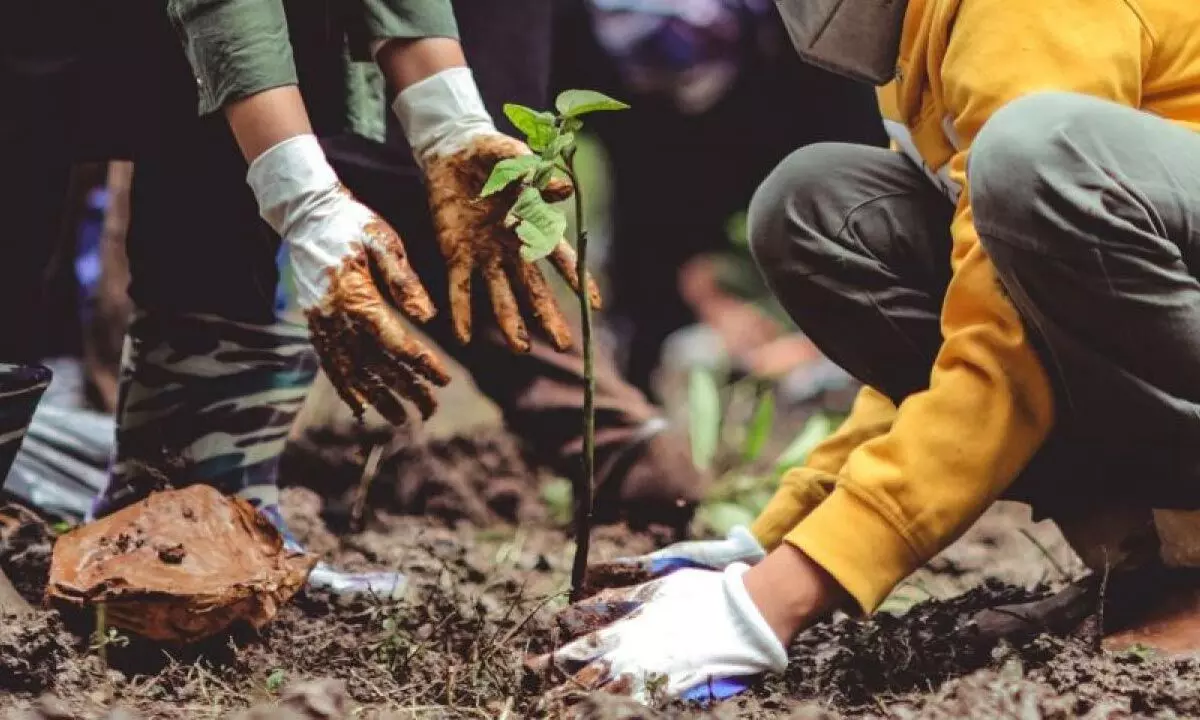Every ‘concerned’ person can help combat climate change
Ensuring a safe future below the 1.5°C mark requires the world to cut 30 gigatonnes greenhouse gas emissions annually by 2030.
image for illustrative purpose

Ensuring a safe future below the 1.5°C mark requires the world to cut 30 gigatonnes greenhouse gas emissions annually by 2030. Transport and industry are not enough. We need to cut carbon emissions by managing our land and resources more efficiently, including building smart cities and curbing deforestation and food waste. UNEP has identified six sectors with the potential to keep the world below the 1.5°C mark. Industry can chip in by strengthening energy efficiency standards. Pricing carbon will facilitate the drawdown of carbon-intensive technologies and promote sustainable alternatives like renewable heating and cooling apart from cutting methane leaks. Every individual can contribute to the cause by exhorting family, friends and associates about the importance of renewable energy. One can organize events and involve communities and neighbourhoods in climate change drives. Reduce, reuse, repair and recycle what you consume can be an effective tool towards achieving the goals, howsoever miniscule. A beginning can go a long way in inspiring others to emulate such lofty self-motivated examples.
One can support companies that practice sustainable and circular practices. This can be done by patronizing businesses that provide spare parts, offer take-back services to reclaim used goods and use recycled materials. One can measure food loss, create waste baselines and implement strategies to reduce food waste by 2030. Don’t fall for temptations and baits dangled by businesses. For instance, one can avoid ‘Buy one get one free’ food promotions if they are likely to cause customers to buy more than they can eat. The aim should be to halve tropical deforestation by 2025 and net deforestation by 2030 globally. Instead priority should be on restoration of climate-friendly initiatives.
The UN Decade on Ecosystem Restoration is a rallying call for the protection and revival of ecosystems all around the world. It runs through 2030, which is also the deadline for Sustainable Development Goals (SDGs) and the timeline scientists have identified as the last chance to prevent catastrophic climate change. There is a compelling need to restore 350 million hectares by 2030, which is integral to the Bonn Challenge.
Invest in landscape conservation and restoration as part of net-zero emission efforts. Equally worth the effort would be in neutralizing carbon footprint through investments in natural carbon sinks, such as forests and opting for electric vehicles. This will be made meaningful when there is a transition to zero-emission transportation, including cars, taxis, buses, trucks and trains. Invest in and remove barriers to non-motorized mobility infrastructure, like protected bicycle lanes or paths for pedestrians. Transportation of raw materials by rail is another wonderful option in this regard.
It is ditto with installation of heat pumps, solar cells and heat storage technology. City planners should integrate grey, blue and green infrastructure to manage resources and runoff with minimal impact to the environment.

